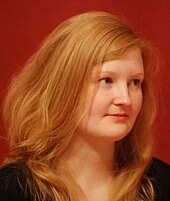Fischer, Katrin
Congratulations on passing the viva voce examination
on 23 February 2022.
Dissertation topic:
"The Emergence of the World from God - The Reception of Avicenna's Ontology by Dominicus Gundisalvi, William of Auvergne and Henry of Ghent."
Contact address at the University of Würzburg:
Institute of Philosophy
DFG project "Arabic and Latin Glossary"
Ehrenhof, south wing
Residenzplatz
97070 Würzburg
First supervisor: Prof. Dr Dag Nikolaus Hasse
Second supervisor:
Class in the Graduate School: "Middle Ages and Early Modern Period"
Doctorate in the Graduate School WS 2008/2009-SS 2015, WS 2021/2022.
Abstract:
Avicenna (Ibn Sīnā, 980-1037) develops the basic idea of his ontology in his Metaphysics(al-Ilāhiyyāt) - the fourth part of his philosophical sum Book of Healing(Kitāb al-Šifāʾ): the distinction between being and essence. He was the first thinker to develop this doctrine into an independent theory. It was to become one of his best-known and most influential doctrines.
After Avicenna's metaphysics was translated into Latin in the twelfth century, his ontology quickly spread among Latin-Christian thinkers. For scholars characterised by a monotheistic worldview, the enormous attraction of this theory lies in the fact that the being-being distinction can be used to derive, in a purely rational way, the most important aspects of the relationship between God and the world when this relationship is considered in terms of being.
In view of the fact that Avicenna's ontology was strongly received by Latin thinkers, the central question I am pursuing in my dissertation is: How far can a Christian thinker go with Avicenna when using his ontology to explain the relationship between God and the world? I am particularly interested in the points at which and the motives for which a thinker modifies Avicenna's theory, interprets it differently from others or breaks with Avicenna altogether. What do these changes to Avicenna's theory mean in terms of content? And in particular: How are they rationally justified? This primarily affects the areas of theology and cosmogony, as ontology has a direct influence on them.
I address my questions to the theories of three selected thinkers of the Latin-Christian tradition: Dominicus Gundisalvi († ca. 1190), William of Auvergne (†1249) and Henry of Ghent (†1293).






